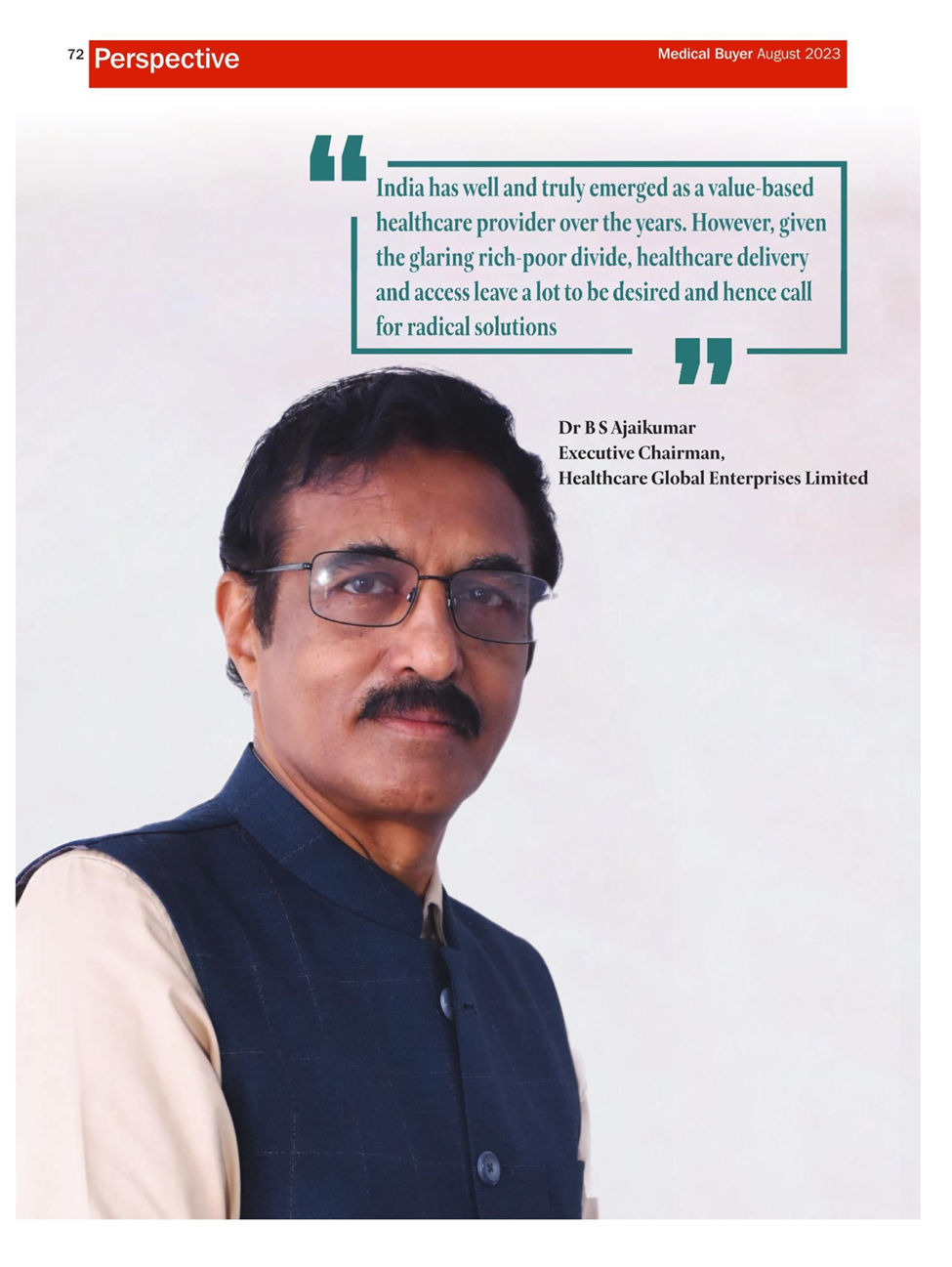
Healthcare in India - Resolving generic challenges

Given its overwhelming diversity and unique complexities, India is effectively a country housing two starkly different countries. One affluent country (let's call it India) belongs to the 350 million people who avail of world class treatments at par with Western benchmarks that help achieve lasting outcomes, as also quality of life and livelihoods at cost-effective price tags.
In sharp contrast, the other country (let's call it Bharat) comprises 900 million people who are yet deprived of quality healthcare across primary, secondary, and tertiary levels. In recent times, the penetration of private hospitals in tier 2 and tier 3 cities as also the government schemes have been encouraging, but right treatment at the right time is yet a distant dream in many rural and semi-urban areas.
The main challenges as I see them include the ways and means of strengthening primary care in India which alone can bridge the gap between India and Bharat. When a disease like cancer recurs, the cost of treatment increases substantially. If early detection gains momentum, and if we ensure quality treatment for all, the cost savings from unnecessary treatment, as also the right treatment at the right time, will be nothing short of phenomenal.
States like Orissa have made decisive breakthroughs in this regard, whether through funds granted to empanelled hospitals for providing free treatment to poor communities. Similar models should be employed pan India to make primary care accessible, affordable, and affable.
A patient, whether rich or poor, has equal right to the right treatment at the right time. A universal healthcare model can alone bring about this uniformity though a cross subsidy approach, whereby financially well-off patients will pay a premium for value-added services, while poor and deprived populations will be given quality care at subsidized rates.
To the government's credit, subsidised care to poor patients has made a difference; yet it in not in line with established quality benchmarks. A prime reason for this shortfall is doctor-patient ratio which is heavily skewed in favour of urban areas. We must set up a foolproof healthcare ecosystem in Tier 2 and 3 cities to address the acute need for quality healthcare. In my view, a brownfield approach to healthcare projects will be apt, whereby big and better performing hospitals can pick up stakes in deprived units across smaller towns and helping them scale up in good time. This way, we can bring high- end technology to Tier-II and Tier-III cities and towns, and help them make the most of disruptive innovation in the form of telehealth, immersive reality, and AI-led systems.
In my opinion, the government should play the role of an impartial agency that audits the performance of private hospitals for incentivizing efficient setups and penalising underperformers, fraudulent, and fly-by-night operators. It should proactively help deserving private hospitals with capital infusion, given the fact that private healthcare provides 75 to 80 percent of healthcare in India. Domain experts should be made an integral part of expert committees to ensure prudent healthcare policies and budgetary provisions.
On the awareness front, there is a lot that the government can initiate, promote, and collaborate with private players. Talking of oncology, it can regularly host cancer prevention programs across both clinical and non- clinical lines.
On the former front, it can take the lead in hosting early detection camps while on the latter front, it can trigger mainstream conversations on promoting healthy lifestyles and diets, environmental protection, and preventive measures like tobacco cessation, regular self-examinations, especially in rural areas. Geriatric care is another huge challenge as close to 65 percent of India's elderly are illiterate, poor, and live in rural areas. Purposeful public-private collaboration can help address the problems and priorities of this vulnerable and often ignored group.
Last but not the least, we must pay heed to the fact that almost 30 to 35 percent of cancers can be prevented by eradicating tobacco from our lives. I believe the youth of India can shoulder the ethical responsibility of cancer control through tobacco cessation provided they are made aware of the cancer burden, and that prevention is several times better than cure, more so in the case of cancer which remains relentless in its pursuit to destroy lives and livelihoods.